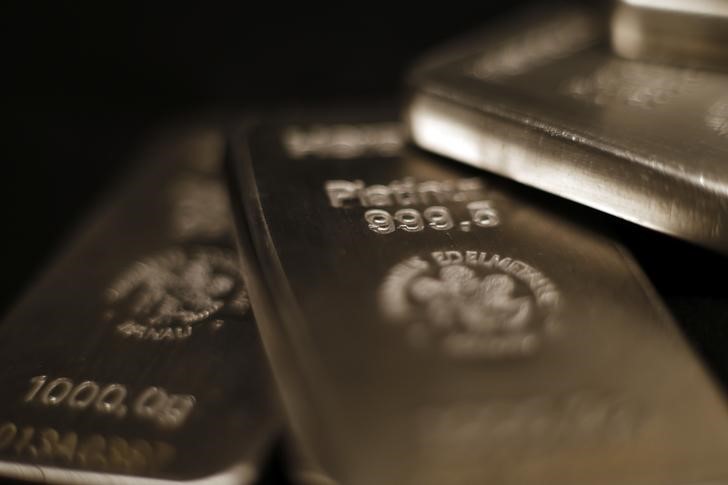(Bloomberg) -- As the platinum industry heads for its annual gathering in London, the question is whether one of the worst-performing metals of the last few years can sustain its recent recovery.
For now, the signs are that it may. Prices of the metal mostly used in autocatalysts are off to the best start to a year since 2016 as investors flock back to exchange-traded funds. The outlook in the physical market is also brightening: The World Platinum Investment Council sees the annual supply surplus shrinking this year, while Johnson Matthey (LON:JMAT) Plc predicts a deficit.
Platinum has had a decent turnaround after reaching a decade low in August, a slump that hurt mining earnings but led to speculation that automakers may start substituting the metal in for palladium. In palladium, prices have been pressured in recent months as near-term supply concerns eased amid weakening car sales. The metal had set a record as recently as March after more stringent emissions regulations prompted a scramble for supplies.
For platinum, there’s been “a dramatic turnaround in sentiment, particularly among European and South African ETF investors,” said Alison Cowley, principal analyst at Johnson Matthey, a key maker of catalytic converters. She said much of the interest is from new investment, rather than a switch out of palladium.
Traders, analysts and mining executives will attend a series of events for London’s Platinum Week. Here’s a recap of what has been driving markets and what may be among the key talking points:
Supply & Demand
The WPIC expects platinum’s surplus to narrow 44% this year to 375,000 ounces, with investment being the main driver. Johnson Matthey is more optimistic, forecasting the market to flip into a 127,000-ounce deficit, also helped my a small recovery in demand from the auto sector.
For palladium, Johnson Matthey estimates the shortage will increase to 809,000 ounces on bigger autocatalyst usage.
There are still plenty of factors that could change the outlook. Wage talks are due in South Africa later this year, and any strikes could hurt output in the biggest producer. Ongoing trade tensions also risk slowing economic growth, and there are still large above-ground stockpiles of platinum.
Substitution
One of the reasons platinum slumped in recent years has been because consumers turned away from diesel vehicles in favor of gasoline, which use more palladium to curb pollution. But the rout also spurred speculation that platinum could become more appealing to the auto industry.
Still, miner MMC Norilsk Nickel PJSC last week said there’s no sign of substitution yet due to the technical challenges and time and money needed.
Investors
Within five months, platinum ETF holdings rebounded from a five-year low to a record high as sentiment improved. Palladium holdings however have been falling for years, as scarce supply created a lucrative business of leasing out metal. But as the rush to get hold of palladium eases and spreads narrow, the question is whether ETFs will keep falling.
Money managers are also changing their views. Speculators’ bullish bets are near the highest in a year, while wagers on higher palladium prices have fallen in recent months.
